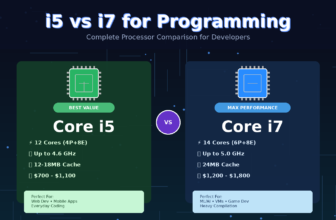

The SaGa series is one of the most unique franchises to come from RPG behemoth Square Enix.
Often known as Final Fantasy‘s “weird” cousin — though that’s a little bit reductive — SaGa was created by Akitoshi Kawazu, one of the game designers on Final Fantasy II, which is often considered the odd one among the Final Fantasy titles. On the surface, Final Fantasy II is pretty similar to its predecessor, with one big exception — levelling. Instead of gaining experience points, your party improves depending on the actions they take. So attack will increase the more you attack, and depending on what weapon your character is attacking with, their proficiency with that weapon will improve.
This wasn’t very well received at the time, but these mechanics are one of the core components of the SaGa series. Moving from the NES to the Game Boy, Makai Toushi Sa・Ga — localised as The Final Fantasy Legend in North America — marked the birth of a truly distinctive RPG series.
SaGa embraced the non-traditional — the games often have non-linear stories. Some follow entire generations of characters, while others let you select your main character and present multiple individual stories. They’re not easy games to love, but if you love RPG systems, then SaGa may well be for you.
The franchise has seen a bit of a revival over the past five years, with multiple remakes, remasters, and even two new games in the series making their way to multiple consoles. And just last week, SaGa Emerald Beyond landed on Switch, which we scored a 7/10 in our review.

The SaGa series is one of the most unique franchises to come from RPG behemoth Square Enix.
Often known as Final Fantasy‘s “weird” cousin — though that’s a little bit reductive — SaGa was created by Akitoshi Kawazu, one of the game designers on Final Fantasy II, which is often considered the odd one among the Final Fantasy titles. On the surface, Final Fantasy II is pretty similar to its predecessor, with one big exception — levelling. Instead of gaining experience points, your party improves depending on the actions they take. So attack will increase the more you attack, and depending on what weapon your character is attacking with, their proficiency with that weapon will improve.
This wasn’t very well received at the time, but these mechanics are one of the core components of the SaGa series. Moving from the NES to the Game Boy, Makai Toushi Sa・Ga — localised as The Final Fantasy Legend in North America — marked the birth of a truly distinctive RPG series.
SaGa embraced the non-traditional — the games often have non-linear stories. Some follow entire generations of characters, while others let you select your main character and present multiple individual stories. They’re not easy games to love, but if you love RPG systems, then SaGa may well be for you.
The franchise has seen a bit of a revival over the past five years, with multiple remakes, remasters, and even two new games in the series making their way to multiple consoles. And just last week, SaGa Emerald Beyond landed on Switch, which we scored a 7/10 in our review.
So, we think it’s time to celebrate the series, and what better way to do that than let you vote!. Over to you, lovely readers…
As always, registered Nintendo Life users can click on the stars below and rate the games out of 10. The resulting ranking (which we’ll publish in due course) is created from those fluid NL User Ratings and is therefore subject to change, even after publication. If you’ve previously rated these games in our database, thank you! If not, you can add your score to the game at any time, present or future, and it will still count and potentially influence the order.
With that out of the way, it’s time to try and get a glimmer and vote for your favourite SaGa game.
Rate each SaGa game you’ve played:
Click the stars below to rate each SaGa you’ve played out of 10:
Thanks for rating your favourites — and give us a shout if you think anything is missing.
We’ll be revealing the results in due course, but remember: much like our platform Top 50s, the list will be fluid, so even if you miss out on voting before the results are revealed, you can still influence the ranking after publication.

























![Samsung Galaxy Watch Ultra (2025) 47mm LTE Smartwatch, Titanium Casing, Advanced Sleep Coaching, Running Coach, Energy Score, Heart Rate Tracking, GPS, Titanium Silver [US Version, 2 Yr Warranty] - Product Image](https://guidantech.com/wp-content/uploads/2026/02/samsung-galaxy-watch-ultra-2025-47mm-lte-smartwatch-titanium-casing-advanced-sleep-coaching-running-coach-energy-score-heart-rate-tracking-gps-titanium-silver-us-version-2-yr-warranty-1-100x115.jpg)
